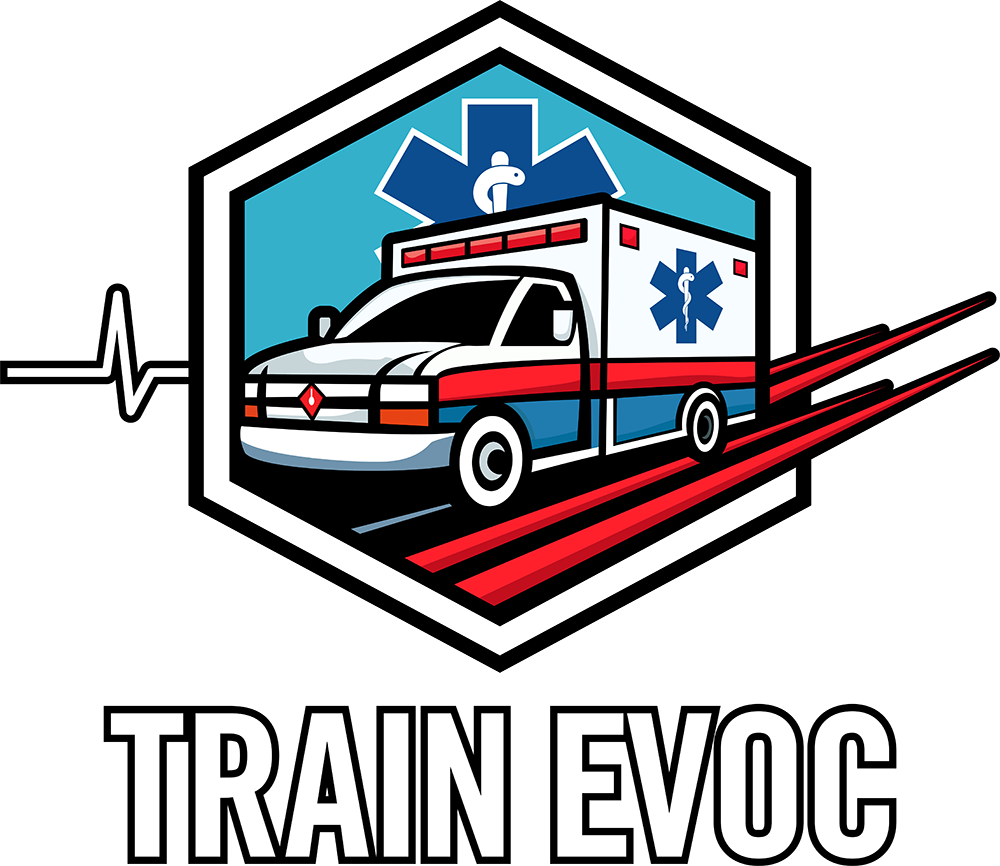If you’re looking to drive emergency vehicles, you might be wondering: Do I need an EVOC certification or a Commercial Driver’s License (CDL)?
While both involve vehicle operation, they serve very different purposes. EVOC is specifically for emergency vehicle operators, while a CDL is required for commercial truck drivers handling heavy cargo and large transport vehicles.
Understanding the distinction is crucial, especially if you’re planning a career in firefighting, EMS, or commercial driving. Let’s break down the key differences, requirements, and which one you actually need.
What is an EVOC?
The Emergency Vehicle Operator Course (EVOC) is designed for first responders who need to operate emergency vehicles under high-pressure conditions. It focuses on:
- Safe maneuvering of ambulances and fire trucks
- Emergency response driving (high-speed operations, defensive driving, intersection navigation)
- Legal and liability considerations for emergency responders
EVOC is legally required for all emergency vehicle operators in Florida. It qualifies drivers to operate Type 1, 2, and 3 ambulances and provides foundational training for handling fire engines, though fire departments typically provide additional training.
What is a CDL?
A Commercial Driver’s License (CDL) is required for operating large commercial vehicles, such as tractor-trailers, buses, and hazardous material transporters. Unlike EVOC, CDL training focuses on:
- General commercial vehicle operation (not emergency response)
- Handling heavy loads and vehicle weight distribution
- Federal and state commercial driving regulations
There are three types of CDLs:
- Class A: Tractor-trailers, tankers, and flatbeds
- Class B: Box trucks, dump trucks, and large buses
- Class C: Passenger vans and hazardous material transporters
Do Emergency Vehicle Operators Need a CDL?
The short answer? No.
EVOC certification is sufficient for driving ambulances and fire trucks in Florida because emergency vehicles are not classified as commercial transport vehicles. Unlike CDL drivers, EVOC-certified personnel are trained for emergency response driving, not commercial freight or passenger transport.
While fire trucks and ambulances are large, EVOC has no weight restrictions, whereas a CDL is required for vehicles over 26,001 pounds if used for commercial purposes.
Can a CDL Holder Drive an Emergency Vehicle?
No, a CDL does not qualify someone to drive an emergency vehicle. Even if someone holds a CDL, they must complete EVOC training to operate ambulances or fire trucks legally.
This is because CDL training does not cover emergency response tactics like high-speed maneuvering, emergency braking, or intersection clearing—critical skills needed for first responders.
Why Do Fire Departments Provide Additional EVOC Training?
Although EVOC certification is required for hiring, fire departments and EMS agencies often conduct their own in-house emergency driving training once recruits are on board.
Even if a candidate is already EVOC-certified, departments may require:
- Annual or biannual EVOC refresher courses
- Advanced fire engine operations training
- Department-specific emergency driving policies
This ensures that emergency responders are consistently trained on the latest vehicle operations and safety protocols.
Key Differences Between EVOC and CDL
| Feature | Emergency Vehicle Operations Course (EVOC) | Commercial Driver’s License (CDL) |
| Purpose | Emergency vehicle operation | Commercial transport driving |
| Required for | Ambulances, fire trucks, police vehicles | Semi-trucks, buses, hazardous material transport |
| Legal Requirement in Florida? | Yes, for all emergency vehicle operators | Only for commercial drivers (not emergency vehicles) |
| Defensive Driving Focus? | Yes (emergency response-specific) | No |
| High-Speed Maneuvers? | Yes | No |
| Weight Restrictions? | No | Yes (for vehicles over 26,001 lbs) |
| Can Substitute for the Other? | No | No |
Making the right choice
While both EVOC certification and a CDL involve vehicle operation, they serve completely different purposes. EVOC is tailored to emergency responders such as firefighters, EMTs, and paramedics, while a CDL is essential for commercial truck drivers and passenger transport operators. Fire trucks and ambulances do not require a CDL, provided the driver has EVOC certification, but CDL holders must still obtain EVOC certification to legally operate emergency vehicles.
If you’re pursuing a career in firefighting or EMS, your next step is to complete EVOC certification through a fire academy or hybrid training provider. Those aiming for commercial driving roles should apply for a CDL through the Florida Department of Highway Safety and Motor Vehicles. For further clarity, check with your local fire department or EMS agency to ensure you meet the right qualifications for your desired role.
